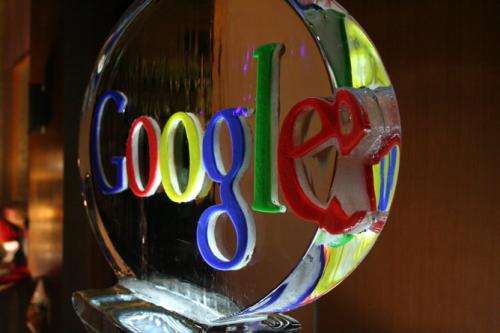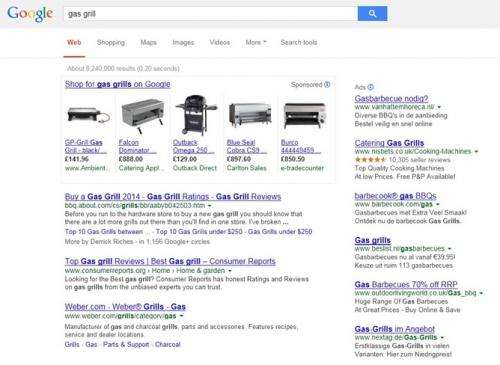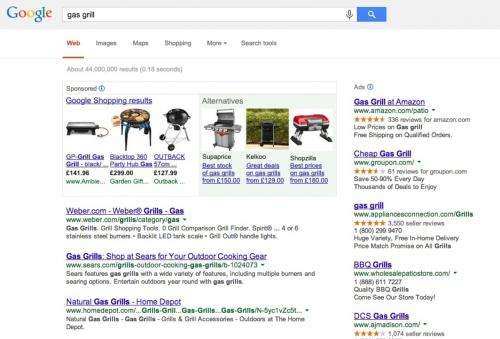Google still controls your information, despite EU ruling

After a long investigation, Google has finally reached a settlement with the European Commission about how it presents search results.
The Commission had started investigating Google in the first place over concerns about its dominance of the search market in Europe, where it accounts for 90% of searches. This is even bigger than its dominance in the US, where it controls around two-thirds of the market.
The company has been accused of prioritising its own webpages and those of rivals and has agreed to change its ways in order to avoid a fine of up to $5 billion.
Search results will now have to report alternative options from other websites. Rather than demoting them in favour of sites that promote Google's own interests, as it has until now.
To comply with the ruling, Google has agreed to give rival links greater visibility, using a dedicated shaded box that can't be switched off. This sits next to Google's own results from specialised services and will be used across mobile and any future versions of Google search that uses the specialised search function.
But, crucially, Google was successful in protecting its secret algorithm from oversight by regulators.
The reaction from other interested parties was not positive. According to FairSearch.org, an advocacy group sponsored by companies such as Microsoft and Oracle, the deal is "worse than nothing". It argues that these measures will not be sufficient to challenge Google's dominance, citing its own study showing that proposals put to the Commission along the way to this agreement only served to drive up traffic to its own sites.

Filtering your life
This rumbling search engine war is a surface issue in a deeper debate about accessing internet information that has gone beyond fair commercial competition and that affects us all.
Search engines have become part of our daily life, playing the extremely important role of the most common intermediary between the user and information on the web. And yet, their authority and their role in presenting and ranking web pages – and therefore information – remains largely unexplored.
The main issue is what is known as "source distance". Search engine queries produce lists of links that take you to the various websites that match the terms you have entered. The order in which these links is ranked relates to the importance of each webpage is to your query. And that is decided by an algorithm developed by the search engine.
The way in which search engines – and Google in particular – privilege sources and put them on top of their rankings using their own algorithm is the subject of a fascinating debate.
Manipulating these rankings has huge potential consequences for users, who see information according to how the search engine wants them to see it.
So if one search engine controls 90% of a market, as Google does in Europe, and you as a company, a group or an individual, don't show up in its rankings, you may as well not exist.

Proprietary algorithms such Google's PageRank and Facebook's News Feed are becoming the main interfaces through which online information is accessed, we should start asking serious questions about the societal implications of such control over information.
As well controlling our information through search algorithms, companies like Google influence our cognition through "filter bubbles". These are created when the invisible filters that search engines use to provide tailored information and advertising to users start to limit the information you see.
This system of inclusion and exclusion of sources based on web history translates into idiosyncratic results for each user. One main effect of the filter bubble is the so-called "echo chamber", in which the information an individual sees simply reaffirms their existing beliefs because it reflects what they have already seen or read. Users aren't presented with anything unexpected or challenging inside their bubble because it matches their previous search patterns and unwittingly avoid challenges to their opinions. In a bid to counter the phenomenon, search engines such as DuckDuckGo are offering anonymous search so that each request for information is like starting anew.
In the past there was much more variety because the presence of different search engines ensured algorithmic variety and different search results. But that variety is being lost, particularly in Europe, because almost all results are curated by Google.
Don't be evil is the informal corporate motto of Google but it has no interest in being "good" either, as the EU deal might suggest to the casual onlooker. It's time for a wider debate, both at national and European level, on the societal consequences of Google's dominance in search and its resulting influence over the knowledge available to us.
Source: The Conversation
This story is published courtesy of The Conversation (under Creative Commons-Attribution/No derivatives).
![]()



















